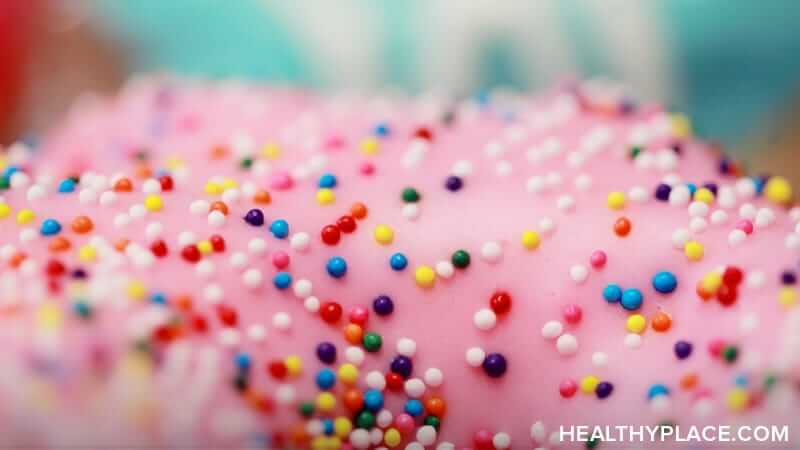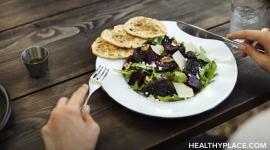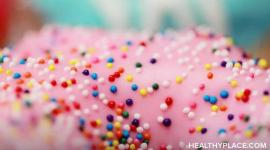Foods that Cause Depression: Worst Foods for Depression

Do some foods cause depression? Evidence shows a strong link between diet and depression, and it points to the worst foods for depression. Researchers are studying how food affects the brain, mental health, and specific conditions like depression. Could there be a link between diet and depression? Are there actually foods that help depression or worsen it? The findings are astounding, if not surprising. What we put into our body has a direct and profound effect on the brain, mental illness, and mental health.
Food varies widely in quality, ingredients, and nutrition. The stuff we eat is what powers the brain and helps it work for our mental health and wellbeing. It can’t function properly if the food we put into our system is neutral at best, harmful at worst.
Depression is complex and has multiple possible causes: neurochemical imbalances, genetics, lifestyle, and diet are all contributing factors. Diet also plays an important part in the severity of depression symptoms as well as the duration of the illness. With this in mind, let’s take a look at foods that cause depression (or at least contribute to it).
Categories of Foods That May Cause Depression
Which foods might cause depression? As nutritionists and neurologists study diet and depression, patterns have emerged. There are distinct foods types that are connected to depression and depression symptoms. When shaping your diet for depression, these are foods to avoid:
- Saturated and trans fats
- Simple carbohydrates (refined sugars)
- Heavily processed foods
Sugary foods, in particular, are especially bad for depression, contributing to its onset, worsening the symptoms, and prolonging someone’s struggle with it. Carbohydrates, both complex and simple, increase serotonin levels. That’s a very good thing for depression because depression involves serotonin levels that are too low. This is why complex carbs like whole grains are good for depression (learn how low carb diets affect depression).
Simple carbohydrates like refined sugars top the list of foods that are bad for depression. Foods like sweets and processed cereals do cause serotonin levels to spike. However, these simple sugars lack substance and nutrients, so they burn up quickly—too quickly to cause lasting benefits of the short-lived serotonin increase. The brain and body experience an abrupt crash, leaving you tired and feeling down. Your symptoms of depression can feel worse following a sugary snack. The more sugary foods you eat (and drink), the more your blood sugar yo-yos, and the brain suffers.
“You can probably make no single change to your diet that will be as good for your health and well-being as cutting down on sugar.” Scott C. Anderson, The Psychobiotic Revolution
Sugars are foods that cause depression as well as worsen and prolong it. This includes sugar substitutes as well. “Light” foods are actually an unhealthy choice for the brain. Aspartame, in particular, is an artificial sweetener implicated in depression. As the body breaks it down, aspartame’s molecules decrease serotonin levels that are already low in people with depression.
Saturated fats, trans fats (partially hydrogenated oils), and omega-6 fatty acids (polyunsaturated, cheap oils are a major source), are damaging. They have been shown in studies to contribute to depression and even violent behavior (an issue separate from major depression). Consuming these fats increases fatigue and sluggishness, thus worsening these depression symptoms.
The Worst Beverages for Depression
So often when people think of nutrition, they think food. Beverages tend to be dismissed as things that can help or harm our physical and mental health. However, just because they’re liquid doesn’t mean they don’t affect us. These beverages have been shown to contribute to or worsen depression:
- Fruit juice (it’s a simple sugar)
- Soda (also a simple sugar, plus studies link it directly to depression)
- Alcohol (in excess, it can disrupt sleep, reduce serotonin levels, and negatively impact medication)
- Coffee (this one’s a maybe—for some, it interferes in sleep, while for others it provides energy and mood boosts. If you can drink coffee, avoid the sugary coffee drinks and coffee sweeteners.)
Examples of the Worst Foods for Depression
You’ve seen the categories of foods that may cause depression or worsen the symptoms. For a convenient go-to reference list, here’s a list of some of the worst foods for depression.
- Processed meats
- Fried foods
- Refined cereals
- Chocolate and other candy
- Sweet desserts
- Cookies
- Doughnuts
- High-fat dairy products
- Anything made with white flour (including bread, baked goods, pancakes, etc.)
- Crackers and other snack food made with partially hydrogenated oils
- Regular ketchup (it has a significant amount of added sugar or artificial sweeteners)
Unfortunately, when creating a diet containing foods that fight depression, the foods to avoid are the ones that are delicious and many of us are accustomed to eating. When you think about the bigger picture, it might become easier to avoid these foods that are harming brain and body and causing or worsening depression. When you replace them with healthier choices, you are also on your way to replacing depression with energy, motivation, positive emotions, and general mental health and wellbeing. You’re not just avoiding foods; you’re creating a depression-free life.
APA Reference
Peterson, T.
(2021, December 30). Foods that Cause Depression: Worst Foods for Depression, HealthyPlace. Retrieved
on 2025, May 11 from https://www.healthyplace.com/depression/food-and-depression/foods-that-cause-depression-worst-foods-for-depression



